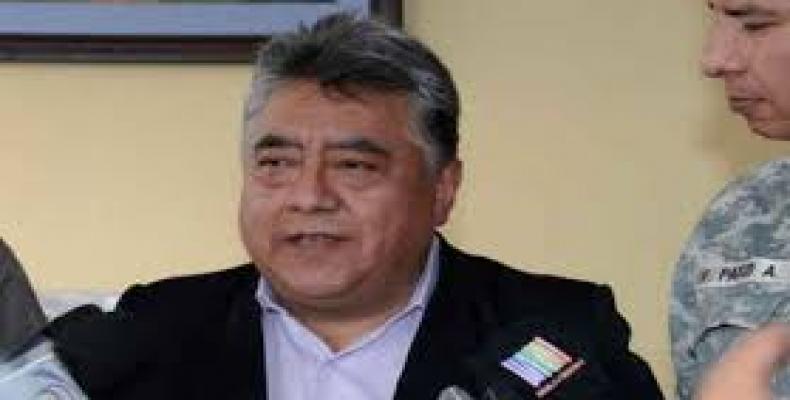United Nations, August 30 (RHC)-- The United Nations has formally asked Bolivian authorities to open an investigation into the beating death of a Bolivian deputy minister on Thursday at the hands of miners protesting government environmental policy.
In a communique, the U.N. asked Bolivia to “identify, judge and sentence the people who ordered and carried out this serious fact.” The document also deplored violent protests that have led to the deaths of three miners in the past few weeks.
At least 100 miners were arrested Friday in the wake of the killing of Rodolfo Illanes, deputy minister of the interior. The Public Prosecutor’s office formally accused six suspects for the murder, including leader Carlos Mamani, president of the Fencomin national mining cooperative federation, which has been leading the protests.
According to a statement, Mamani is accused of “murder, aggravated robbery, criminal organization, unlawful possession and carrying, and attacks against members of state security.” The other five face charges as accomplices.
Rodolfo Illanes was killed late Thursday after being taken hostage by protesting miners earlier in the day on the highway between La Paz and Oruro in an area called Panduro. According to officials, Illanes died of blows to the head and body in an act carried out with “malice and premeditation.” His aide was also seriously injured, but his condition stabilized after he spent time in intensive care, local media reported.
President Evo Morales accused mining cooperatives of spearheading a “political conspiracy” and siding up with right-wing political groups and private corporations. The Bolivian president said: "We are getting information now and finding documents that say this is to take down the government.”
The strike was sparked by a new piece of legislation, known as Law 149, enacted on August 19th. The law enshrines labor rights and challenges direct contracts between miner cooperatives and transnational mining giants, instead requiring state involvement. Miners reject the law, demanding the government loosen environmental standards and allow mining cooperatives to sign contracts with private companies directly to increase mining opportunities. The initial list of 10 demands increased to 24 during the course of the protests.


